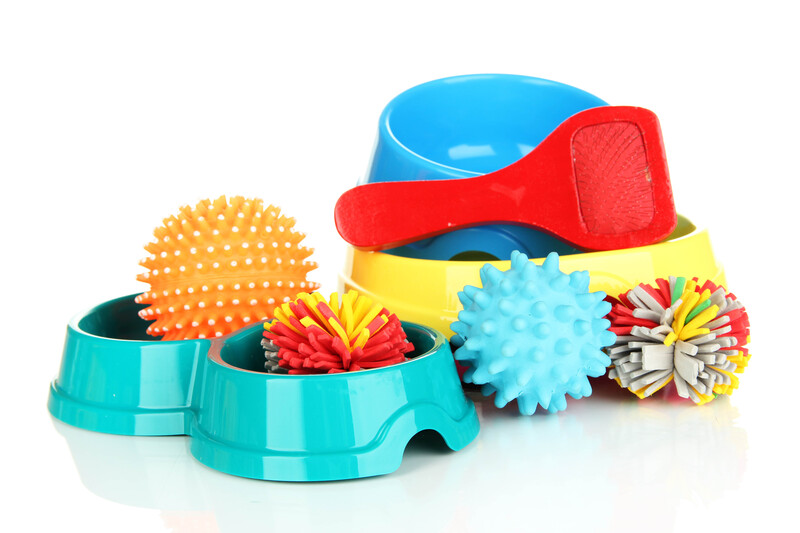Packing Like a Pro: Techniques for a Better Move
Posted on 18/05/2025
Packing Like a Pro: Techniques for a Better Move
Packing for a move might seem straightforward, but professional-grade packing can make a world of difference. Overlooked details often lead to broken dishes, lost items, and post-move headaches. If you're wondering how to make moving easier, faster, and more organized, you've landed in the right place. This comprehensive article covers proven professional packing techniques and tips to ensure a more efficient move, minimize risk, and reduce stress.
Why Packing Like a Pro Matters
Anyone who has experienced a stressful move knows the value of smart packing strategies. Not only does it protect your possessions, but it also saves unpacking time and reduces anxiety when you settle into your new place.
- Prevents breakage and damage to fragile items
- Streamlines moving day logistics
- Simplifies the unpacking process
- Keeps important items easily accessible
- Helps movers work efficiently
- Reduces moving time and related costs
Let's break down every step for an outstanding packing experience.

Essential Packing Supplies for a Professional Move
Investing in the right materials sets the stage for efficient packing. Here's what every pro uses:
- Sturdy moving boxes in multiple sizes
- Packing paper and bubble wrap
- Stretch wrap for furniture
- Packing tape and a dispenser
- Markers for labeling
- Ziploc bags for small parts
- Packing peanuts or foam for extra cushioning
- Scissors and utility knife
- Garbage bags and mattress covers
Pro tip: Don't cut corners on strong boxes and tape. Cheap materials are a false economy and can result in disaster during your move.
Packing Strategies Movers Swear By
The difference between an amateur and a pro is all about strategy. Use these best practices to elevate your moving process:
1. Declutter Before You Begin
Packing less means less to move and less to unpack. Take advantage of your move to sort out belongings you no longer need. Organize into piles: keep, donate, sell, and trash. Decluttering first is the fastest way to simplify your move.
2. Make an Inventory List
Professional packers track every item. Use a spreadsheet or moving app to create a detailed inventory. This will give you peace of mind, help you spot missing items and is especially handy for insurance claims if something gets lost or damaged during the move.
3. Pack by Room, Not by Category
It can be tempting to box up all your books or clothes together, but packing by room makes unpacking in your new space much easier. Clearly label boxes by room and contents.
4. Use the Right Box for Each Item
- Heavy items should go in small boxes
- Light items can fill large boxes
- Don't overfill boxes--keep the weight under 50lbs if possible
- Place heavier items on the bottom and lighter ones on top
5. Master the Art of Labeling
Every box should be labeled on at least two sides and the top. At a minimum, include the room and general contents. For the ultimate organized move, add:
- Your name (if movers are handling multiple families)
- Handling instructions (e.g. fragile, this side up, do not stack)
- Priority number (e.g. #1 = open first, #10 = non-essentials)
Advanced Packing Techniques for Fragile Items
Some items require extra care to ensure they arrive in perfect condition. Here's how to pack fragile belongings like a professional:
Plates and Dishes
- Use small boxes for fragile dishes
- Wrap each plate with packing paper or bubble wrap
- Stand plates vertically--never lay them flat
- Add cushioning between plates and around the box edges
- Fill empty spaces with crumpled paper
Glasses and Stemware
- Individually wrap each glass or stemware
- Use cardboard dividers for extra protection
- Pack glasses upright, not on their sides
- Clearly mark as fragile
Electronics
- If available, use original packaging
- Remove batteries (to avoid corrosion/leakage)
- Cable-tie cords and label them
- Wrap screens in anti-static bubble wrap
- Fill empty box spaces to prevent movement
Mirrors and Artwork
- Affix masking tape in an “X” pattern over glass surfaces to prevent shattering
- Wrap the artwork in glassine, followed by bubble wrap
- Place inside a picture/mirror box if possible
- Transport upright and clearly label as fragile
Packing Clothes Like a Moving Expert
Clothing is deceptively bulky. Keep it organized and minimize wrinkles with these techniques:
Wardrobe Boxes
- Great for dresses, suits, coats, and shirts on hangers
- Allow you to move clothes directly from closet to box
- No folding, no mess!
Rolling & Folding for Efficiency
- Roll t-shirts, jeans, and sweaters to save space
- Use vacuum-sealed bags for off-season clothes
- Pack shoes in their boxes or use shoe bags
- Stuff socks and small items inside shoes to save space
Pro tip: Line luggage and duffel bags with clothes or linens for double-duty packing.
Packing Furniture the Right Way
Properly preparing your furniture for a move prevents costly damage:
- Disassemble beds, tables, and shelving as much as possible
- Keep screws and parts in labeled Ziploc bags, tape them to the main item
- Wrap furniture in moving blankets or shrink wrap
- Protect corners and sharp edges with foam padding
- Cover mattresses and sofas with plastic for dust and moisture protection
Secrets to Packing an Essentials Box
The first night in a new home can be chaotic if you can't find your toothbrush, chargers, or pajamas. Professionals always set aside an essentials box for each household member:
- Toiletries (soap, toothpaste, towel)
- Change of clothes and pajamas
- Medications and personal documents
- Important chargers and devices
- Basic kitchen utensils, snacks, bottled water
- Toilet paper and cleaning supplies
- Pet food and essentials if you have animals
Label this box clearly and transport it yourself if possible.
Professional Labeling and Color Coding
Taking your labeling game up a notch ensures an organized move:
- Color-coded labels: Assign a color for each room. Stick corresponding colored labels or tape on each box, making room deliveries at your new home fast and easy.
- Number system: Number each box and record it in your inventory. This helps you verify all boxes arrive at the destination.
- Special instructions: Use large, bold markers to write "FRAGILE," "OPEN FIRST," or any special handling notes.
The Don’ts of Packing For a Move
Knowing what not to do is just as important as learning how to pack like a pro:
- Don't leave packing until the last minute
- Don't pack hazardous materials (gasoline, paint, aerosol cans)
- Don't skimp on cushioning for breakables
- Don't use newspaper for anything that can be stained
- Don't overload boxes or make them too heavy to lift safely
- Never pack important documents or valuables with the rest of your household goods--take them with you personally
Bonus Tips for a Flawless Move
- Enlist help early: Secure friends, family, or professional movers well in advance.
- Pack an "open me first" kit: Include scissors, box cutter, snacks, soap, and toilet paper.
- Reserve elevators and parking at your new place if needed.
- Take photos of electronics setups to make reassembly easier.
- Use suitcases for especially heavy items like books.
- Keep cleaning supplies accessible for move-in day touch-ups.
How to Hire Professional Packers
Even with great tips, sometimes leaving the packing to the pros makes sense, especially for large or complex moves. When searching for a mover:
- Request a detailed quote including packing materials and labor
- Check reviews and certifications
- Ask about insurance policies and coverage
- Verify the company's licensing and experience with your type of move
- Communicate clearly about valuables and specialty items
After the Move: Unpacking Like a Pro
You've made it! Now, use these unpacking tips to finish strong:
- Start with the essentials box for a comfortable first night
- Unpack room by room, starting with bedrooms and the kitchen
- Check items off your inventory as they're unpacked
- Break down boxes and recycle packing materials
- Set up furniture, then organize smaller items
- Take your time--unpacking doesn't have to be done in a day!

Environmental Tips: Eco-Friendly Moving
Packing like a pro can be green, too:
- Rent plastic moving bins instead of buying cardboard boxes
- Recycle old newspapers for wrapping non-food items
- Donate boxes, packing peanuts, and bubble wrap after your move
- Choose biodegradable packing materials where possible
Final Thoughts: Becoming a Packing Professional
Packing for a move doesn't have to be overwhelming. When you follow these pro packing techniques, you'll not only protect your belongings, but you'll also speed up your move and make settling in smoother. Remember: advance planning, quality supplies, and solid packing strategies are the keys to a better move.
Ready to tackle your next move with confidence? Keep this guide handy, and you'll be packing like a pro in no time!
Related articles:
- 10 Common Moving Mistakes to Avoid
- How to Choose the Best Moving Company
- Ultimate Guide to Stress-Free Unpacking
Latest Posts
Comprehensive House Cleaning Guide for Movers
Maximize Your Move: Securely Transport Your Bed and Mattress
Expert Advice for Preserving Your Sofa in Storage
Solo Strategies for Safely Lifting Heavy Items
Navigating Piano Moving: The Safer Path of Professional Assistance







